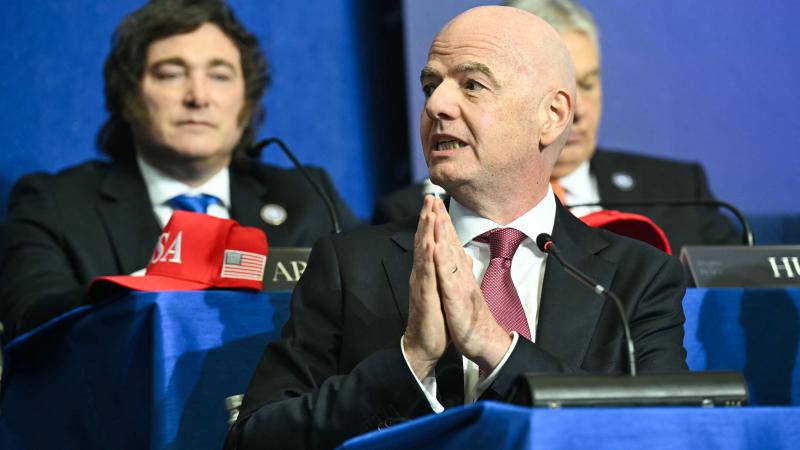Saudi Arabia may accept yuan instead of dollars for Chinese oil sales: report
Saudi Arabia and China are in discussions to price some oil sales in yuan instead of dollars in a slap to the Biden
Saudi Arabia and China are in discussions to price some oil sales in yuan instead of U.S. dollars in a slap to the Biden administration that would decrease the dominance of the American currency in the international petroleum market, sources told The Wall Street Journal.
While Beijing and Riyadh have been in discussions on and off for several years about yuan-priced oil contracts, talks have accelerated recently due to U.S. security policies under President Joe Biden, people familiar with the issue told the newspaper.
The Saudis are angry with the United States for not assisting in their intervention in Yemen's civil war, started by Iranian-backed Houthi rebels in 2014. The Kingdom is also upset over the Biden administration's efforts to enter a nuclear deal with Iran.
Saudi officials also have expressed disapproval over
Biden's chaotic withdrawal from Afghanistan in August 2021.
"I don’t know which word to use, whether incompetence, carelessness, bad management — it was all a combination of those things,” Saudi Prince Turki Al-Faisal told CNBC last year.
Saudi Arabia exports 6.2 million barrels of crude oil a day and has traded in dollars exclusively since 1974 when President Richard Nixon struck a deal with the kingdom by guaranteeing security.
China buys more than a quarter of all Saudi oil exports, according to the WSJ. If the sales are priced in yuan, it would be a major boost to China's currency as 80% of all global oil sales are done in dollars.
Beijing introduced yuan-priced oil contracts in 2018, but has been unable to successfully beat the dollar in the global oil market.
Relations between Saudi Arabia and China have grown increasingly friendly over the years as Beijing has helped the kingdom build ballistic missiles and other projects.
"China has been offering everything you could possibly imagine to the kingdom," a Saudi official told the WSJ.
Biden's relationship with Saudi Arabia has been less than friendly. During his campaign, Biden promised to make the kingdom a "pariah" for the 2018 killing of Saudi journalist Jamal Khashoggi.
The president vowed last year to "end the war in Yemen," and "all American support... including relevant arms sales."
The White House denied reports last week that officials in the United Arab Emirates and Saudi Arabia declined Biden's calls.
China is also buying more than three times the amount of oil from Saudi Arabia as the United States, whose purchases have been declining over the last several decades, the WSJ reported.
"The dynamics have dramatically changed. The U.S. relationship with the Saudis has changed, China is the world’s biggest crude importer and they are offering many lucrative incentives to the kingdom," a Saudi official told the outlet.
While the Saudis intend to still do most oil transactions in dollars, if the move goes through, other producers may begin to price their oil in yuan also, sources said.
"If it is (done) now at a time of strong oil prices, it would not be seen negatively. It would be more seen as deepening ties with China," Monica Malik, chief economist at Abu Dhabi Commercial Bank, told the WSJ.
















